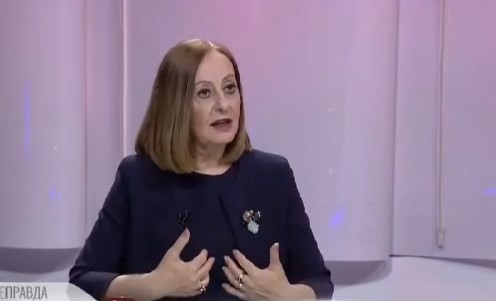The even division in the Constitutional Court which was evident earlier this week, as the crucial issue of the 2016 presidential pardons was raised, explains why the ruling SDSM party insists so strongly on putting judge Dobrila Kacarska to the court. Kacarska is a full on SDSM loyalist and her appointment would disrupt the current 4 – 4 balance.
The next session of the court, dedicated to the legality of the pardons, is set for ten days. SDSM needs 61 votes in Parliament to seat Kacarska on the court and the SDSM – DUI – BESA has 62 votes, but a number of representatives are sick with Covid-19, otherwise engaged and DUI leader Ali Ahmeti even facing possible war crimes charges in the Hague.
President Ivanov gave pardons to dozens of political officials, activists, their relatives.., after a flood of charges, mainly from the Special Prosecutor’s Office (SPO), a now completely discredited institution formed on the urging of the SDSM party and its international backers. Ivanov said that the charges initiated by SPO and its chief Katica Janeva are meant to pressure Macedonian decision makers into accepting a deeply unfavorable name and identity change – a prediction which the nation later saw play out. Ivanov said that with the pardons he will liberate the political elite of Macedonia and allow it to decide independently.
Under international pressure, a new law was adopted to allow the recipients of the pardons to give them back, which they did. But as the trials became more and more of a farce, some of the recipients of the pardons asked the court to rely on the principle that a presidential pardon, once given, can’t be revoked. This issue is now before the ECHR, and a decision by the Constitutional Court could preempt a potentially humiliating decision in the ECHR.
The ruling SDSM party and its supporters in the Constitutional Court want to keep the pardons off the table – SDSM is openly using the trials initiated by Janeva for its continued blackmail of many former VMRO-DPMNE officials. A number of VMRO officials who were charged by Janeva, or other prosecutors linked to SDSM, voted for the imposed name change in Parliament, or are currently busy creating divisions in VMRO, helping SDSM reduce the pressure from its own very unstable ruling coalition that has a wafer thin majority in the Parliament. SDSM is currently desperately trying to bolster its majority in the court, by nominating one of their most outspoken loyalists in the judiciary to the position.





Comments are closed for this post.